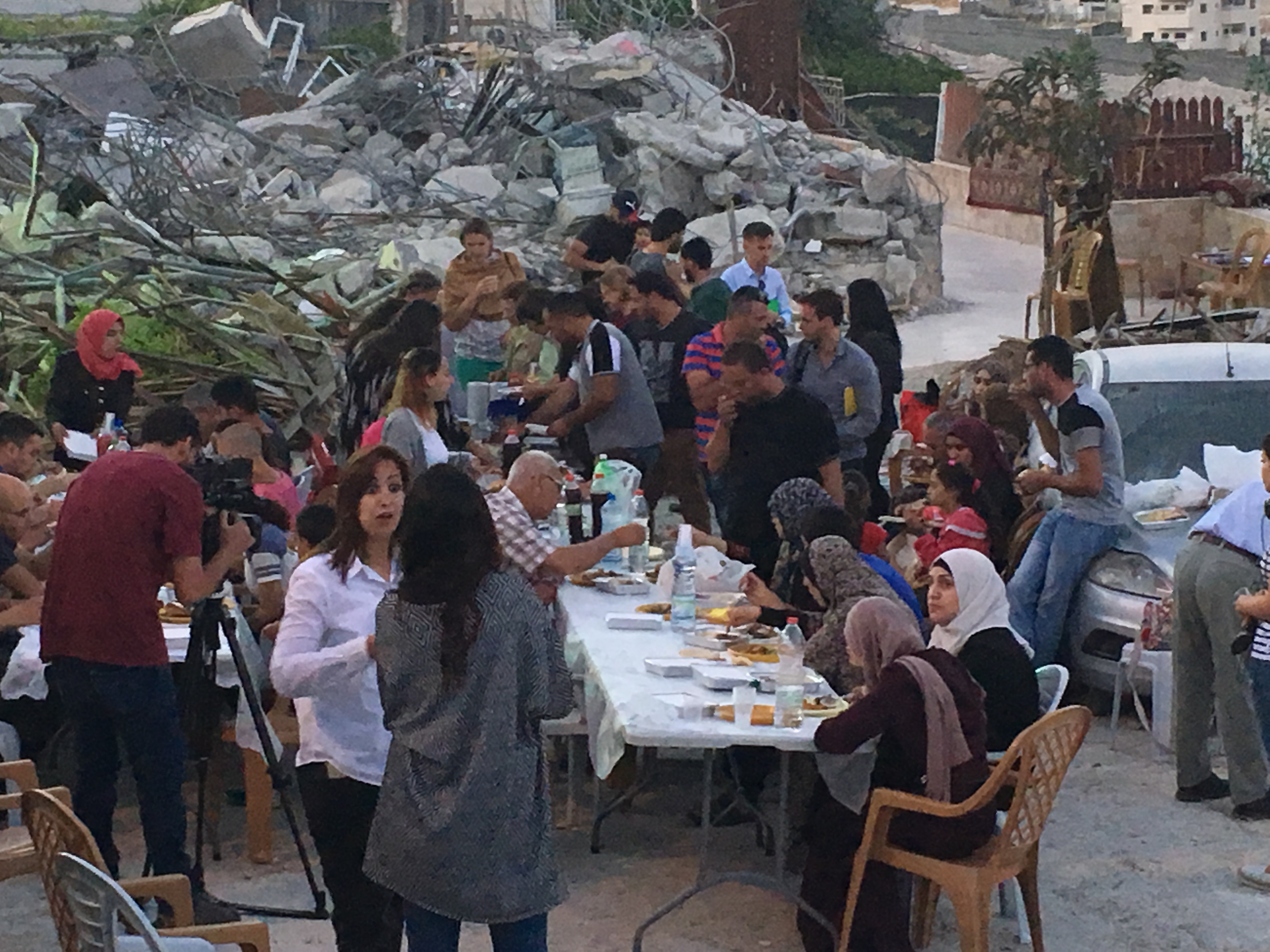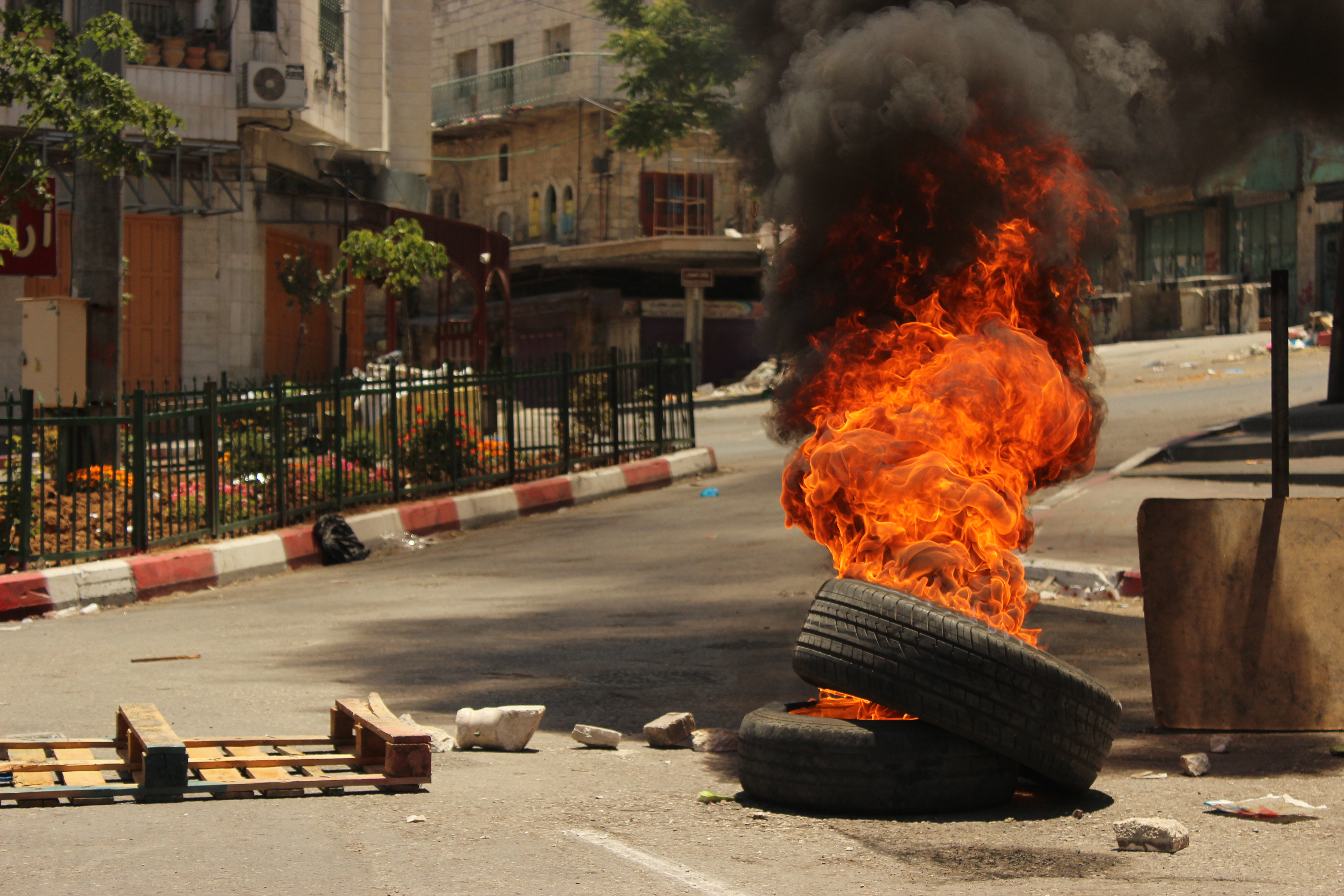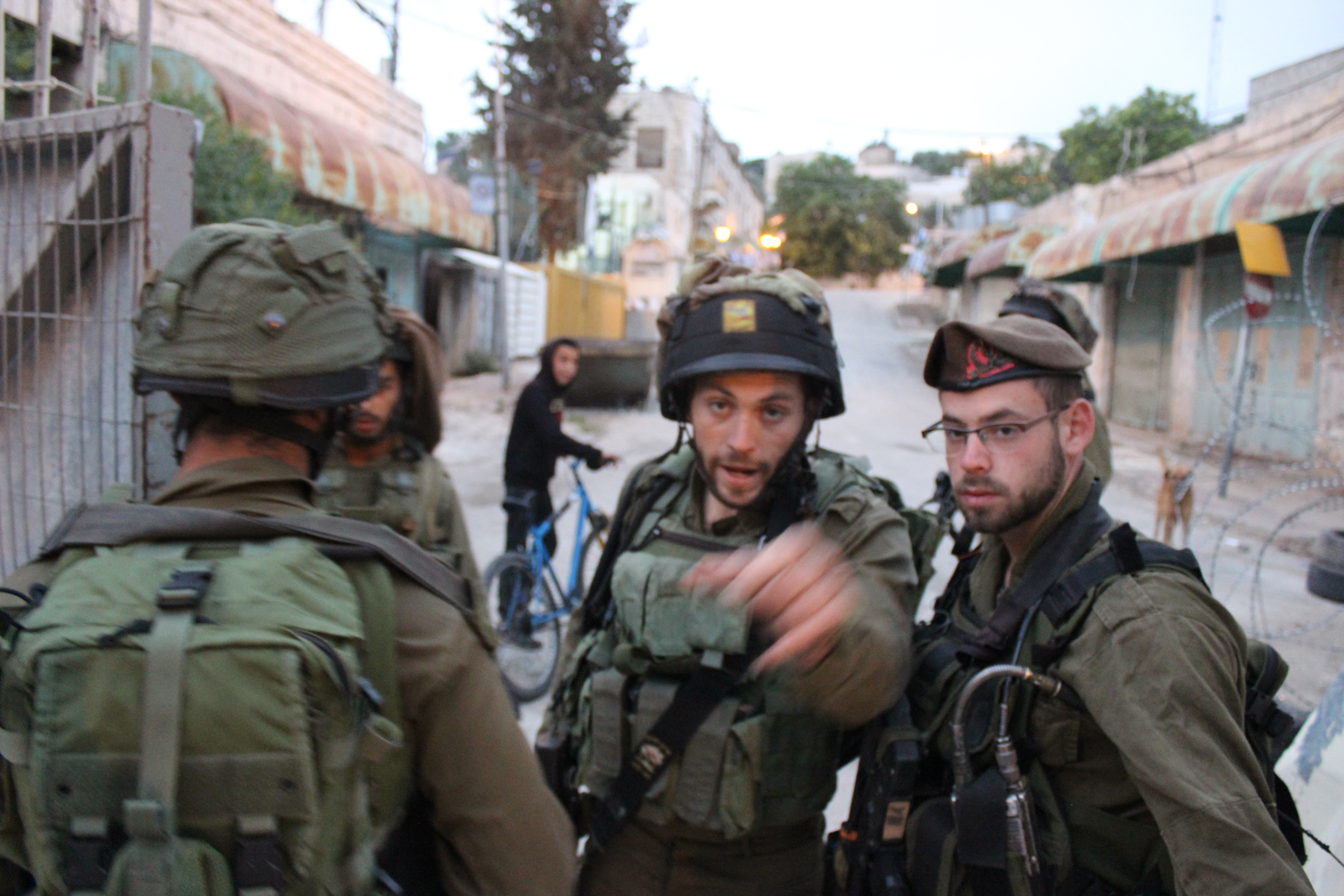Category: Features
-
Iftar on the Rubble
14th June 2017 | International Solidarity Movement, al-Khalil team | Jerusalem, occupied Palestine Seventy people gathered in the Sur Baher neighborhood of occupied East Jerusalem for a communal solidarity Iftar on the rubble of the home of Ashraf and Islam Fawaqa. The Fawaqa home was one of nine Palestinian homes and 3 stores that were…
-
Two shot in Hebron as Israeli forces clash with protesters during general strike
Palestinian protesters clashed with Israeli soldiers and border police yesterday in Hebron, as Palestinians demonstrated in solidarity with the prisoners’ hunger strike. The clash lasted for five hours, with Israeli forces using tear gas, sound bombs, rubber-coated steel bullets, and live ammunition to disperse the protesters. A 15-year old and a 20-year old were shot,…
-
14-year old detained in al-Khalil as tensions run high
A 14-year old Palestinian boy was detained yesterday afternoon as Israeli forces conducted a search in Hebron’s Old City. The boy was riding his bike when four heavily armed soldiers began interrogating him. Shortly after, he was taken to Bab al-Baladiyya military base. Prior to the search, soldiers had stopped several men outside the base.…



